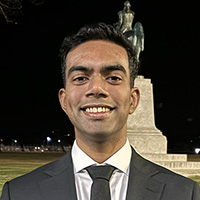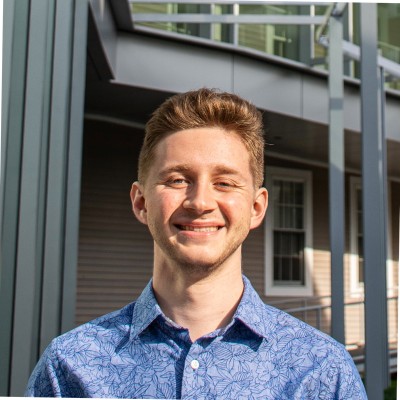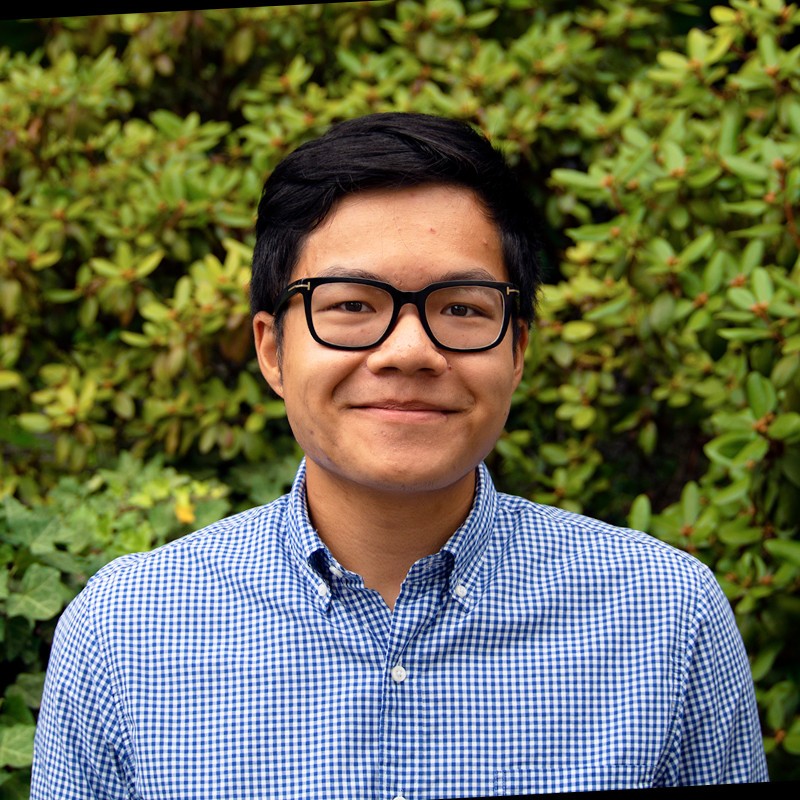Brown School of Engineering incoming graduate student Saleem Ali, current Ph.D. student Eva Erickson, senior Angelina Schorr and alumnus Joseph Urban ’21 have each been awarded a three-year fellowship in the National Science Foundation Graduate Research Fellowship Program (NSF GRFP). Additionally, Jason Ho ’22, and current graduate students Nikita Redkar and Avery Trevino were tabbed honorable mention candidates for the fellowship.
The NSF GRFP helps ensure the vitality of the human resource base of science and engineering in the United States and reinforces its diversity. The program recognizes and supports outstanding graduate students in NSF-supported STEM disciplines who are pursuing research-based masters and doctoral degrees at accredited United States institutions. NSF Fellows are anticipated to become knowledge experts who can contribute significantly to research, teaching, and innovations in science and engineering. These individuals are crucial to maintaining and advancing the nation’s technological infrastructure and national security as well as contributing to the economic well-being of society at large.


Erickson is a second-year doctoral student in Professor Kenny Breuer’s fluids and thermal sciences lab, where she has transitioned from biomechanics to bio-inspired robotics, conducting research on vortex induced vibrations of elastically mounted bluff bodies in unsteady vortex wakes. Specifically, she is looking at how seal whisker inspired geometries can suppress vortex induced vibrations to act as underwater sensors. Erickson earned her bachelor of science degree in physics from Georgia Tech in 2022, where she concentrated in Physics of Living Systems, studying centipede locomotion on complex terrains.

Schorr is completing a senior honors thesis in Howard M. Reisman ’76, P’09 Assistant Professor of Engineering Vikas Srivastava’s lab, evaluating cancer and healthy cell response to chemical stimuli in engineered tumor microenvironments. Previously, she was a researcher on a project that entailed increasing chemotherapeutic efficacy using pH-modulating and chemotherapeutic-releasing hydrogels, and co-authored a paper on this subject that was published in September 2023. Schorr was the recipient of Brown Engineering’s Neal B. Mitchell ’58 Systems Thinking Project Award, which helped fund the project over the summer of 2022. She then participated in the MIT Summer Research Program for the summer of 2023, working in the lab of Anders Sejr Hansen on a project related to genetic promoter characterization. After graduation, she will remain at Brown to begin her doctoral work with Assistant Professor Theresa Raimondo on RNA-lipid nanoparticles to modulate immunity.

Urban is currently working as a microfluidic systems engineer at Draper, where he has helped develop technologies used for multiplexed pathogen detection, microfluidic blood oxygenation, implantable device manufacturing, and CAR T-cell bioprocessing. While at Brown, he received his undergraduate degree in biomedical engineering with honors as a member of Professor Eric Darling’s lab. There, he investigated the use of hyper-compliant microparticles as drug delivery vehicles for long-term intravenous release, and was awarded the Domenico A. Ionata ’26 award for creativity in executing his thesis project. This fall, he will attend Boston University to obtain his Ph.D. in biomedical engineering, where he plans to pursue interdisciplinary research that applies systems biology principles and synthetic biology techniques to program the behavior of lab-grown tissues.

Ho, who received an honorable mention for the prestigious award, is currently in graduate school at the University of Texas at Austin. He is studying computer architecture, with a focus on neuromorphic (brain-inspired) machine learning hardware, examining the co-design of hybrid analog-digital neuromorphic (brain-like) computing systems that combine the energy efficiency of analog computing systems with the scalability of digital computing blocks. While at Brown, he did research with Associate Professor Jacob Rosenstein and Professor Sherief Reda.

Honorable mention awardee Redkar is a first year Ph.D. student in Yue Qi’s Materials Simulation for Clean Energy laboratory. Her undergraduate degree from UC Berkeley was in chemical engineering with chemistry and mathematics minors. At Brown, Redkar conducts research using computational methods to develop better battery technology with Professor Yue Qi.
Trevino, also named an honorable mention selection, is a second year Ph.D. student. He earned his bachelor’s degree in mechanical engineering, with an emphasis in applied math and physics, from UC Berkeley, and did undergraduate research at Lawrence Berkeley National Laboratory studying stochastic mesoscale systems and computational fluid dynamics. At Brown, he conducts research in biological flows, working with Professor Roberto Zenit and serves as a teaching assistant to several popular engineering undergraduate courses.
In all, 32 Brown students and alumni in science, technology, engineering and mathematics fields were chosen to receive tuition support and a stipend as promising young STEM leaders.